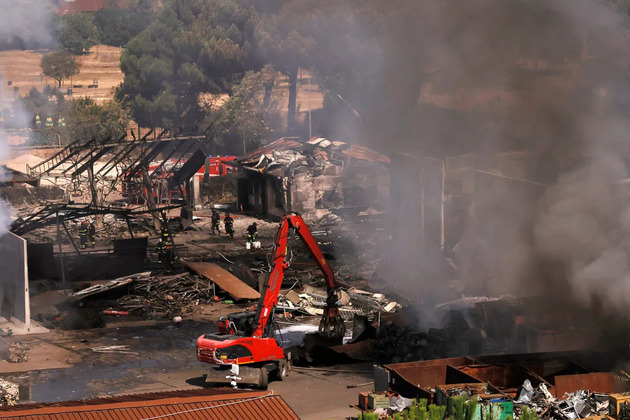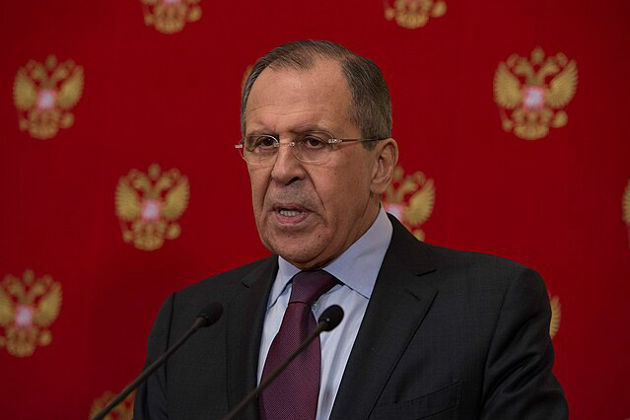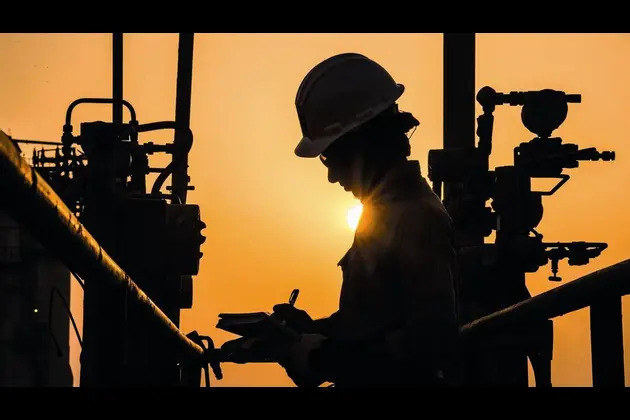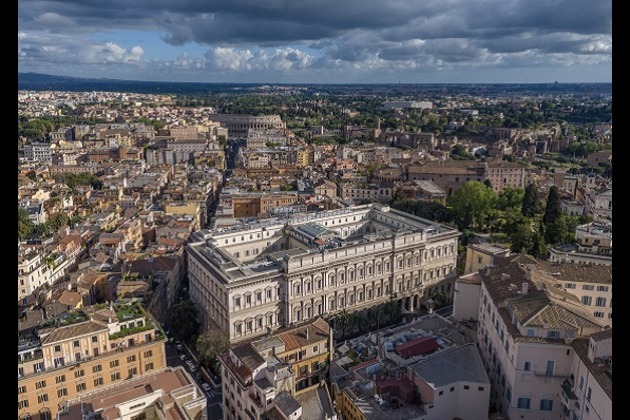Five ways coronavirus lockdowns increase inequality
The Conversation
08 Apr 2020, 18:18 GMT+10
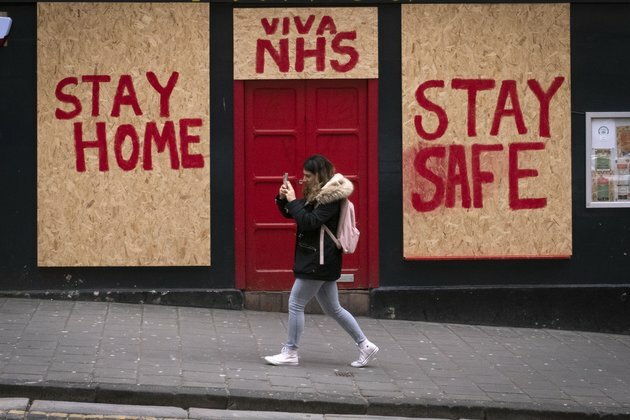
There are still many things we do not yet know about coronavirus, including the mortality rate. We also do not know the ultimate economic effect of measures that governments across the world have implemented to slow the spread of the virus. Nonetheless, it's safe to say that social distancing will increase social inequality.
Exactly how much it does so will occupy researchers for decades to come. Indeed, the pandemic provides one of the greatest natural experiments in a generation - what happens when governments all over the world instruct people to cease almost all forms of economic activity and stay at home.
But the worst effects of social distancing will undoubtedly be felt by the young, the poor and the socially disadvantaged. Here are five key ways how.
1. Access to money
While older people are clearly more susceptible to the symptoms of coronavirus, they typically have more money at their disposal. More of their incomes will be from pensions, which in the short term at least are less affected by the economic shock resulting from social distancing.
Many, including myself, have watched in awe as stock markets had their steepest and most sustained falls since 1987. Yet global equity markets are still above levels previously seen as recently as December 2018. Markets are clearly volatile, but have barely erased two years of gains from their recent all-time highs.
But those without savings to tide them through the lockdown, including many younger people involved in the gig economy as well as the self-employed and small business owners, are struggling. They are finding it hard to pay their mortgage or their rents, and - in some cases to put food on the table - as they grapple with their applications for the state support available.
2. Access to work
Leaving aside those involved in healthcare and other essential jobs, higher-paid desk-working professionals are most likely to have the means, the opportunity and the know-how to work effectively from home. Accounts of enjoyable morning walks and breakfast picnics with the children, or an hour of gardening morning and evening in lieu of the daily commute are familiar in this social group.
By contrast, lower-paid or blue-collar workers, the self-employed, and small businesses in the hospitality industry - and many trades deemed as non-essential by the state - are having a very hard time indeed.
3. Access to education
From March 13 2020, my university joined many other educational institutions around the world in putting all learning and assessment online, or suspending it altogether for the foreseeable future. This disadvantages those without access to a good internet connection, good IT equipment, a good home study environment, and the technical knowledge essential for online learning, or the means to obtain it.
There are now calls by some in the sector to suspend all examinations and even classes until the lockdown has lifted. Yet this may be even worse, if it causes those from social backgrounds that are less committed to education - for example those who are the first in their family to engage with higher education - to drift away from it, if formal learning activities are suspended completely.
4. Effects of social distancing on health
There is a large and growing body of evidence showing substantial mental and physical health benefits from taking regular exercise and fresh air in the natural environment - and that this has the potential to save the NHS billions. Access to areas of natural beauty is limited in lockdown to those typically wealthier households living in more scenic neighbourhoods.
Many people in big cities have no outside space of their own to venture out into, let alone access to the great outdoors, yet more crowded and densely packed housing increases the need to access open space, both for mental and physical health. Now parks are being shut, despite being a lifeline to many. The toll of social distancing on the less advantaged will outlast the time spent in lockdown.
5. Societal division
As a social scientist, a disturbing phenomenon of this pandemic for me is the emerging trend which seems to imply that individual pleasure is not allowed during a national state of emergency. Social media is awash with chastisement and vigilantism toward those who dare to seek solace by venturing into the fresh air and open spaces of other neighbourhoods.
Social distancing means maintaining a space of at least two metres between oneself and other individuals who are not of the same household. It seems that all of the risks involved with people spending more time outside could easily be addressed by implementing simple behaviour changes, many of which are already included in government guidelines.
While the rising daily mortality figures are clearly disturbing, they should be considered in the context of total mortality from other causes. For example, air pollution is a global problem that in Italy alone kills more than 80,000 people every year. Yet global efforts to ban the sources of air pollution proceed at a glacial pace relative to efforts to tackle the immediate but temporary threat of coronavirus. One could go on to consider substantial recurring annual death rates from other preventable causes such as obesity, road traffic accidents, or mental illness - none of which receive anything like the attention of coronavirus.
Unless a new approach is adopted, future research will show that current social distancing guidelines caused long-term ill health, inequality, and social division that exceeded the short-term benefits. Moreover, data indicates that changes in life expectancy are less favourable for disadvantaged social groups. If economic paralysis resulting from coronavirus lockdowns is such that the global economy takes years to recover, what will be the long-term effect on mortality, our ability to fund future healthcare, and to tackle the climate emergency? There will be no NHS to protect if we cannot generate the wealth to pay for it.
If the current lockdown is short in duration and effective, these side effects might just be manageable. But if it continues for many months, future generations may conclude that herd immunity combined with isolation for the vulnerable might not have been such a bad idea after all.
Author: Isaac T. Tabner - Senior Lecturer in Finance, Director of the MSc Finance, University of Stirling 
 Share
Share
 Tweet
Tweet
 Share
Share
 Flip
Flip
 Email
Email
Watch latest videos
Subscribe and Follow
Get a daily dose of Utah Independent news through our daily email, its complimentary and keeps you fully up to date with world and business news as well.
News RELEASES
Publish news of your business, community or sports group, personnel appointments, major event and more by submitting a news release to Utah Independent.
More InformationInternational
SectionGas station blast injures 40 in Rome, kids narrowly escape
ROME, Italy: Quick thinking by emergency responders helped prevent greater devastation after a gas station explosion in southeastern...
Weapons pause by Trump signals shift away from foreign wars
WASHINGTON, D.C.: President Donald Trump is drawing praise from his core supporters after halting key arms shipments to Ukraine, a...
Moscow removes Taliban from banned list, grants official status
MOSCOW, Russia: This week, Russia became the first country to officially recognize the Taliban as the government of Afghanistan since...
Netanyahu vows 'No Hamas' in postwar Gaza amid peace talks
CAIRO, Egypt: This week, both Hamas and Israel shared their views ahead of expected peace talks about a new U.S.-backed ceasefire plan....
US sends message by publicizing visa ban on UK punk-rap band
WASHINGTON, D.C.: The Trump administration has made public a visa decision that would usually be kept private. It did this to send...
Tragedy in Spain: Diogo Jota and his brother die in car accident
MADRID, Spain: Liverpool footballer Diogo Jota and his younger brother, André Silva, have died in a car accident in Spain. Spanish...
Business
SectionSaudi Aramco plans asset sales to raise billions, say sources
DUBAI, U.A.E.: Saudi Aramco is exploring asset sales as part of a broader push to unlock capital, with gas-fired power plants among...
Russia among 4 systemic risk countries for Italian banks
MILAN, Italy: Italian regulators have flagged four non-EU countries—including Russia—as carrying systemic financial risk for domestic...
US debt limit raised, but spending bill fuels fiscal concerns
NEW YORK CITY, New York: With just weeks to spare before a potential government default, U.S. lawmakers passed a sweeping tax and spending...
Shein hit with 40 million euro fine in France over deceptive discounts
PARIS, France: Fast-fashion giant Shein has been fined 40 million euros by France's antitrust authority over deceptive discount practices...
Meta hires SSI CEO Gross as AI race intensifies among tech giants
PALO ALTO/TEL AVIV: The battle for top AI talent has claimed another high-profile casualty—this time at Safe Superintelligence (SSI),...
Engine defect prompts Nissan to recall over 443,000 vehicles
FRANKLIN, Tennessee: Hundreds of thousands of Nissan and Infiniti vehicles are being recalled across the United States due to a potential...

